Search Results
Showing results 1 to 20 of 141

Neurotransmitters Contain Chemicals
Source Institutions
In this activity, learners play a simple card game to learn the sequence of events in the transmission of nervous system signals.
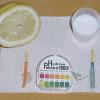
Acid (and Base) Rainbows
Learners use red cabbage juice and pH indicator paper to test the acidity and basicity of household materials. The activity links this concept of acids and bases to acid rain and other pollutants.
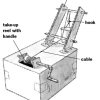
Heavy Lifting: Design Squad
Source Institutions
In this engineering challenge, learners design and build a crane out of cardboard to see how heavy a load it can lift.

Watch It Fly
Source Institutions
Learners observe projectile motion by launching wooden balls off of a table top. They set up a rubber-band launcher so that each ball experiences a consistent amount of force.

Ramps 1: Let it Roll!
Source Institutions
In this activity about ramps, learners explore and measure the rate at which spherical objects roll down a ramp.

Modeling Mendel's Pea Experiment
Source Institutions
This modeling activity allows learners to discover for themselves what Mendel uncovered in his famous pea experiments.
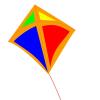
Building Tetrahedral Kites
Source Institutions
Working in teams of four, learners build tetrahedral kites following specific instructions and using specific materials.

Charge Challenge
Source Institutions
In this activity, learners explore how objects can have positive, negative, or neutral charges, which attract, repel and move between objects.
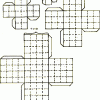
Modeling Limits to Cell Size
Source Institutions
This investigation provides learners with a hands-on activity that simulates the changing relationship of surface areas-to-volume for a growing cell.
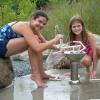
Measure the Speed of a Water Leak
Source Institutions
In this activity (page 2 of PDF under GPS: Glaciers Activity), learners will measure the rate at which water streams out of a leaky cup.

Delta, Delta, Delta
Source Institutions
In this experiment, learners construct an equilateral triangle using graph paper, a pencil, protractor and ruler. They also make a "laser triangle" using a laser pointer and front-silvered mirrors.

Mystery Boxes for Grades 3-5
Source Institutions
Learners manipulate opaque, sealed boxes and attempt to determine their interior structures. Each box contains a moving ball and one or more fixed barriers.

Linear Functions: Mystery Liquids
Source Institutions
In this math lesson, learners analyze the density of liquids in order to explore linear functions.
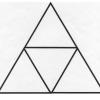
Geometry: Let's Face It
Source Institutions
In this math lesson, learners identify, describe, and construct the five regular polyhedra.

Egg-cellent Landing
Learners recreate the classic egg-drop experiment with an analogy to the Mars rover landing. The concept of terminal velocity will be introduced, and learners perform several velocity calculations.

Make a Dinosaur Model
Source Institutions
In this activity, learners explore dinosaur skeletons, anatomy, and locomotion. Learners compare and contrast dinosaur skeletons and drawings.
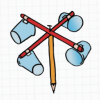
Twirling in the Breeze
Source Institutions
In this engineering activity, learners build a device (an anemometer) to measure how fast the wind is blowing.

The Carbon Cycle and its Role in Climate Change: Activity 3
Source Institutions
In this activity, learners explore the human influences on the carbon cycle and examine how fossil fuels release carbon.

Amazon Water Cycle Roleplay
Source Institutions
In this creative roleplay activity, learners will explore the various processes of the water cycle using movement, sound, and props to aid in comprehension.
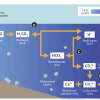
Coral, Carbon Dioxide and Calcification
Source Institutions
In this group activity, learners act out key stages of the "ocean carbon cycle" (also known as the "carbonate buffer system") through motions, rearranging blocks and team tasks.
